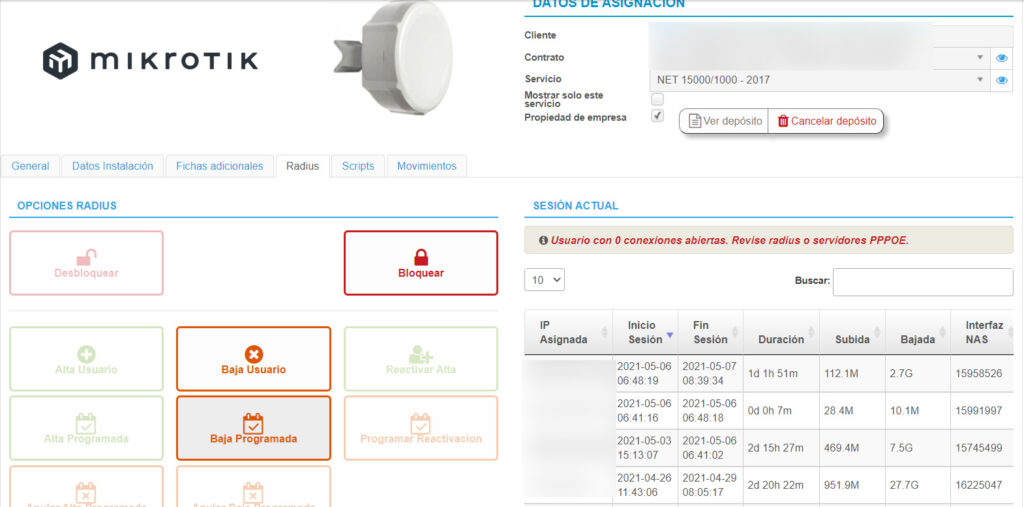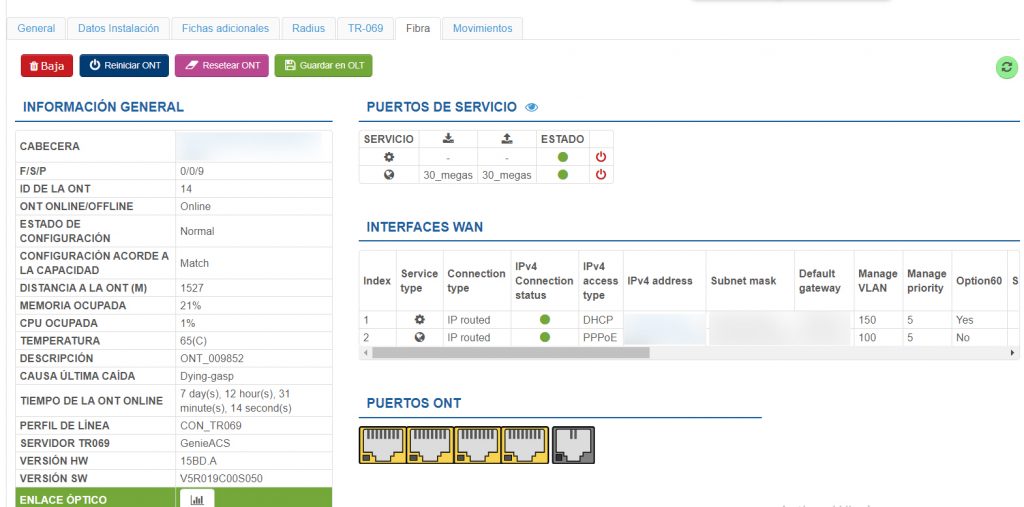RADIUS SERVER

A RADIUS server (Remote Authentication Dial-In User Service) It is a network server used to authenticate, authorize, and account for user access to networks and network services. They are often used to provide Internet access over a wireless (Wi-Fi) network.
Some common features of a RADIUS server include:
- Support for different authentication protocols such as PPP, VPN, Wi-Fi, etc.
- Ability to store user profile information and assign specific network settings to different user groups.
- Ability to log and monitor user access and detect failed login attempts.
- Integration with external authentication systems, such as Active Directory or LDAP.
- Ability to use additional authentication methods, such as one-time tokens or digital certificates.
- Provide detailed reports of network usage and activity.
In the specific context of an ISP (Internet Service Provider), a RADIUS server can be used to authenticate users attempting to access a Wi-Fi network or VPN provided by the ISP. It can also be used to control access to premium services or to limit the bandwidth available to certain users or groups of users.
The ACS server is responsible for authenticating users and determining their identity. This is typically done through the use of usernames and passwords, but can also include other methods, such as smart cards or biometric authentication.
Once a user has been authenticated, the ACS server determines which resources they are authorized to access. This is done by matching the user's identity and access rights to a set of predefined access control policies.
The ACS server includes tools to manage and define access control policies. These policies specify which users can access which resources and under what conditions.
The ACS server generates reports on access activity, which can be used to track and monitor access to resources. These reports can be used to identify potential security issues, such as unauthorized access attempts or suspicious activity.
The ACS server is designed to handle a large number of users and resources, and can be scaled to meet the specific needs of each company.
The ACS server can be integrated with other systems and technologies, such as firewalls, VPNs, and identity management systems.
ACS servers are designed to be highly available, with features such as redundancy and failover to ensure that access to resources is not interrupted in the event of server failures.
DHW SERVER

ACS is the acronym for Self Configuration Server. It works under the TR069 protocol and allows the definition of templates to self-configure a multitude of devices in different ways, depending on their technical characteristics and the service that is intended to be assigned to the client.
Through a ACS server, an ISP can save a great deal of time configuring each customer's equipment Extraordinary time savings if integrated with our software ISP Gestión.

